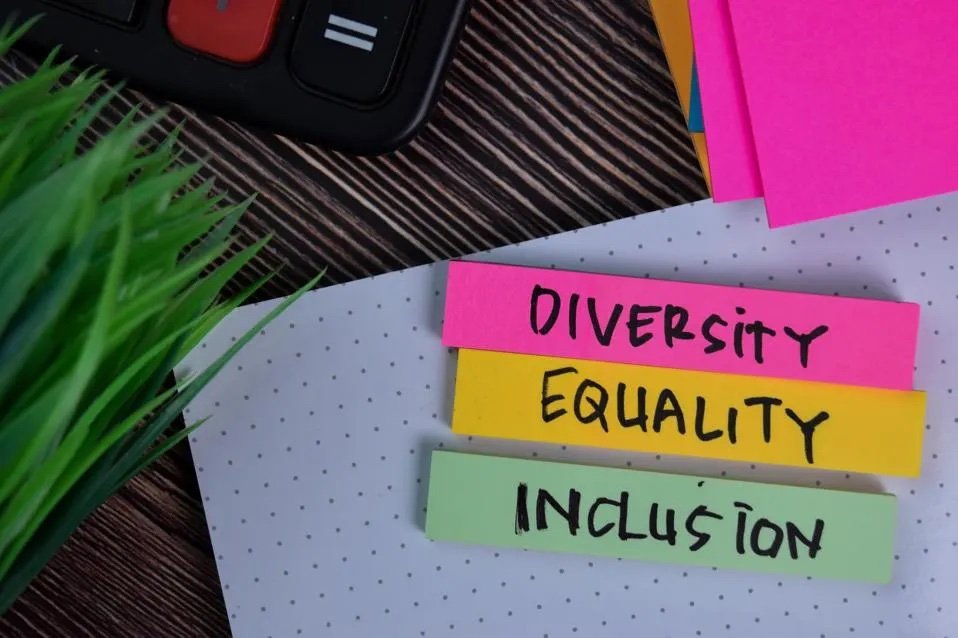Diversity, Equity, & Inclusion Audit
Trident works with organisations to audit their current practices & culture with regards to DEI. An audit will usually include facilitating focus groups, one-on-one conversations, dialogues with leaders, and review of policies/documents. An audit with Trident will result in a comprehensive document, detailing an organisation’s current DEI culture, with substantial recommendations for future initiatives.
Focus Groups
Trident can facilitate focus groups with organisational members (and students, in a school setting) to identify what are the positives and challenges of the current DEI culture. Focus groups are confidential, structured, and can be done with specific stakeholders (for instance, women, staff with disabilities, etc).
Leadership Conversations
Leaders are an essential part of any organisations’ DEI culture. An audit with Trident will include specific dialogues with leaders to understand their perspectives, backgrounds, and experiences. At the end of an audit, Trident will also meet with leaders again to discuss the outcomes and recommendations.
Audit Output
The outcome of a DEI audit with Trident will be a thorough document that clearly details the strengths and areas of ongoing improvement for an organisation. Trident is committed to providing organisations with substantial short, medium, and long-term recommendations for next steps in an organisation’s DEI journey.
To learn a little more…
When should I engage Trident?
Now! Don’t wait until a big incident has happened to audit current practices, procedures and culture. DEI is an evolving landscape and many organisations are still in the early stages of developing a concrete strategy for support. Trident can help you be proactive in learning and identifying where gaps may exist in DEI work in your organisation.
What can we do with our final report?
The final report from an audit can become the foundation for the next ongoing steps in an organisation’s DEI journey. The report will be filled with action items divided into short, medium, and long term projects, which can then be allocated to the appropriate departments.
Why should I bring Trident in for an audit?
Bringing someone into the organisation who doesn’t work there can be an effective way to create confidential spaces that encourage honest sharing. An outsiders’ perspective is less biased and can spot issues, patterns, and challenges that those directly involved may not be able to see.
How often should an organisation conduct an audit?
If an org has never had one before, now is the time! In general, auditing DEI culture, practices, and policies every 3-4 years will provide important benchmarks as an organisation grows and changes. Smaller employee surveys on a yearly basis can also be a way to keep up with the current pulse and sentiments.
Does conducting an audit mean that something is wrong?
Not necessarily! An audit can be a great way to get a snapshot of the current climate and culture. It is a way to gain understanding of how folks are feeling about their experience with DEI in the organisation and a way to be proactive about the next steps an org can take on their journey.
Why talk about this? My organisation has no issues with DEI.
It’s easy to think this! It’s unlikely to have zero issues related to DEI in a workplace! Additionally, organisations can always work to improve what they are currently doing. As employee and student demographics constantly shift, there will be new challenges and benefits that organisations can capitalise on!
I can’t sing Andrew’s praises enough for the work he did to strengthen our school's identity through his audit of the status of DEI at CIS. It was a very important chapter in our DEI journey.
Andrew skillfully conducted focus group meetings with seven different stakeholder groups to identify strengths, concerns and challenges. He also reviewed school documents that included the staff handbook, outgoing communications, student and staff codes of conduct, parent prospectus documents, and Human Resources policies. The report he produced was comprehensive and included priorities to help systematise and institutionalise DEI within all aspects of the school, as well as strengths, impacts, and challenges. The short, medium and long term goals he recommended were particularly helpful in informing our three year plan.
Throughout the process he gave us a safe space to be heard and communicate transparently. The structures he implemented to organize each stakeholder's thoughts and identify key next steps resulted in a deep sense of belonging and renewed energy and faith around this work which has far reaching impact.
—Carol Jordan, Deputy Head of Canadian International School, Singapore

